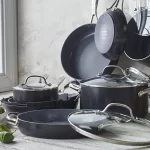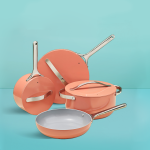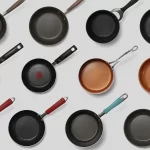In the fast-paced world of modern cooking, with its ever-evolving culinary trends and state-of-the-art gadgets, there is one kitchen essential that has stood the test of time: cast iron. Dating back centuries, cast iron cookware continues to capture the hearts of both professional chefs and home cooks alike, thanks to its remarkable benefits and timeless power in the realm of cooking. In this article, we delve into the enduring appeal and explore the numerous advantages that make cast iron a staple in every kitchen. From superior heat retention to unparalleled durability, join us on a journey as we unravel why cast iron remains an indispensable tool for achieving exceptional culinary results.
Unmatched Heat Retention: Unlocking the Secret to Perfectly Cooked Meals
Cast iron cookware is renowned for its unmatched heat retention capabilities, making it a favorite among chefs and home cooks alike. When heated, cast iron evenly distributes and holds onto heat for an extended period of time, ensuring that your meals are cooked thoroughly and to perfection.
The key to cast iron’s exceptional heat retention lies in its composition. Made from solid metal, cast iron retains heat much more effectively than other types of cookware materials like aluminum or stainless steel. This means that once your pan reaches the desired temperature, it stays hot throughout the cooking process, allowing you to achieve consistent results every time.
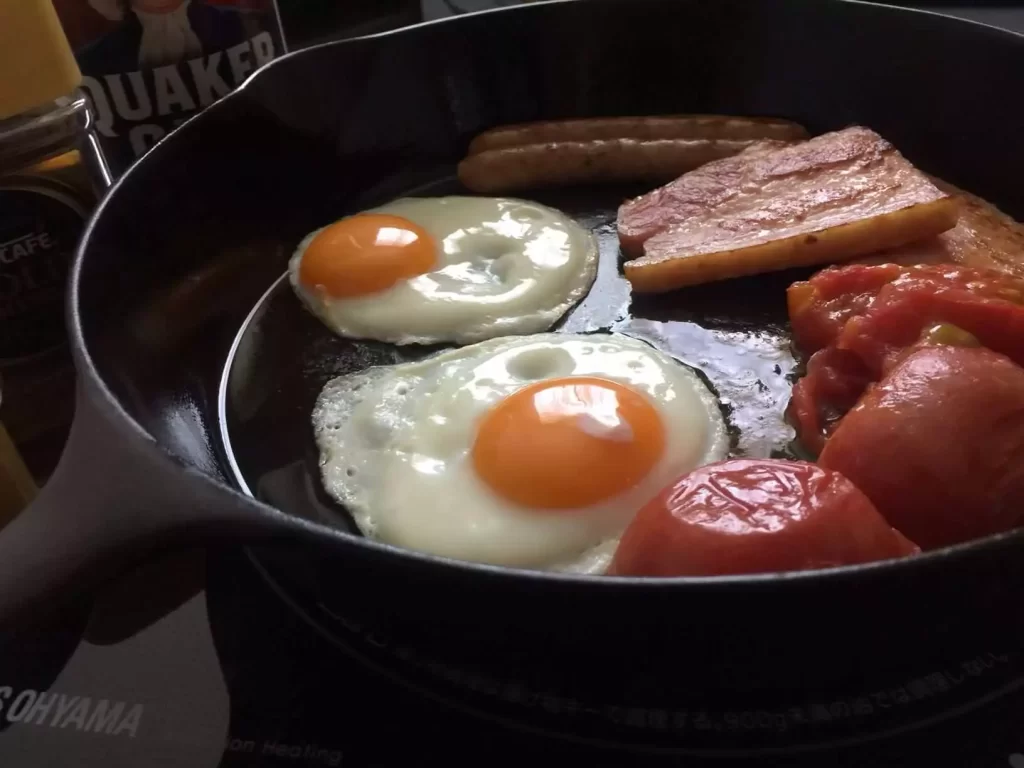
Benefits of Unmatched Heat Retention:
- Better searing: The ability of cast iron to retain high levels of heat enables superior searing and browning of foods. Whether you’re preparing a juicy steak or sautéing vegetables, the intense heat provided by cast iron results in a mouthwatering crust while sealing in flavors.
- Energy efficiency: With its exceptional ability to hold on to heat over an extended period of time even after being removed from direct heat source, cast irons saves energy as there is no need for continuous high-level heating.
- Even cooking: Cast iron’s even distribution of retained heat allows food to cook uniformly without any hotspots. This ensures that each bite is cooked through at a steady pace while maintaining optimal moisture content.
Unlock the secret behind perfectly cooked meals with the unbeatable power of cast iron’s unparalleled heat retention abilities.
The Versatility of Cast Iron: From Stove to Oven, Grill to Campfire
Cast iron cookware offers incredible versatility for cooking in various settings and has been a kitchen staple for centuries. Whether you’re cooking on a stove, in the oven, over a grill, or even on a campfire, cast iron pans and dutch ovens can handle it all.
- Stove: Cast iron pans are perfect for stovetop cooking as they distribute heat evenly and retain heat exceptionally well.
- Oven: With their ability to withstand high temperatures, cast iron skillets can easily transition from stovetop to the oven without any worry of warping or damaging the pan.
- Grill: Take your outdoor grilling game up a notch by using cast iron grates or skillet directly on your grill. They provide excellent heat retention and create beautiful grill marks on meats and vegetables.
- Campfire: If you enjoy camping trips, bring along your trusty cast iron Dutch oven. It can be used over an open fire to prepare hearty meals like stews or even bake bread with its superior heat distribution.
No matter where you choose to cook – whether it’s at home in the kitchen or out in nature – cast iron will reliably deliver exceptional results every time. Its durability makes it suitable for any culinary adventure you embark upon.
Health Benefits of Cast Iron Cooking: Adding Nutritional Value to Your Meals
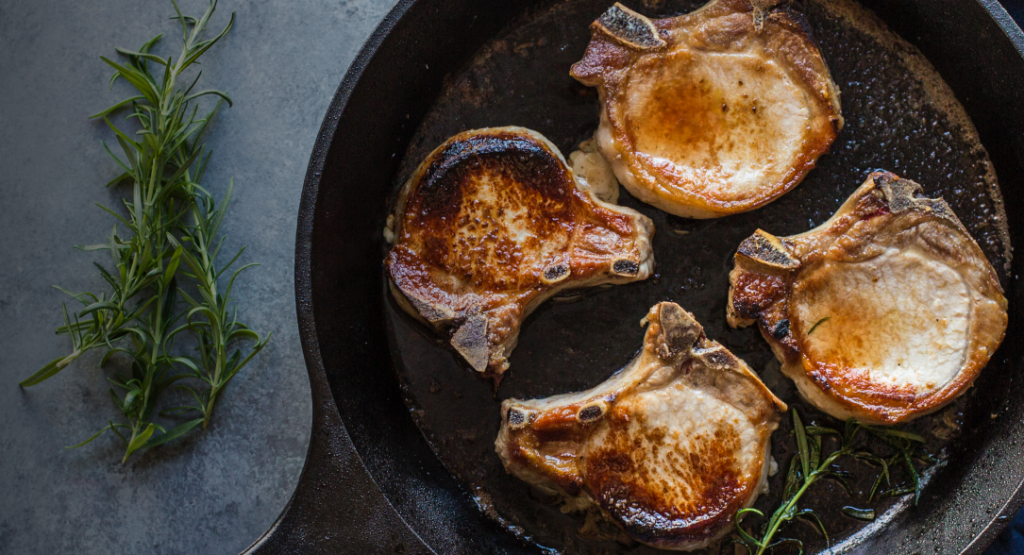
When it comes to cooking, the type of cookware you choose can have a significant impact on the nutritional value of your meals. Cast iron cooking, in particular, offers several health benefits that make it a worthwhile investment for any kitchen.
- Enhanced Iron Intake: One of the major advantages of cast iron cookware is its ability to release small amounts of dietary iron into the food as it cooks. This can be beneficial for individuals who struggle with iron deficiency or anemia.
- Chemical-Free Cooking: Unlike non-stick pans that may contain potentially harmful chemicals, cast iron is a chemical-free option that provides peace of mind when preparing your favorite dishes.
- Improved Heat Retention: The excellent heat retention properties of cast iron ensure even and consistent cooking temperatures, helping to preserve vital nutrients in your meals.
By incorporating cast iron cookware into your kitchen arsenal, you not only enhance the flavor and texture of your dishes but also add nutritional value that promotes overall wellness.
Durability and Longevity: Investing in a Kitchen Companion for Generations
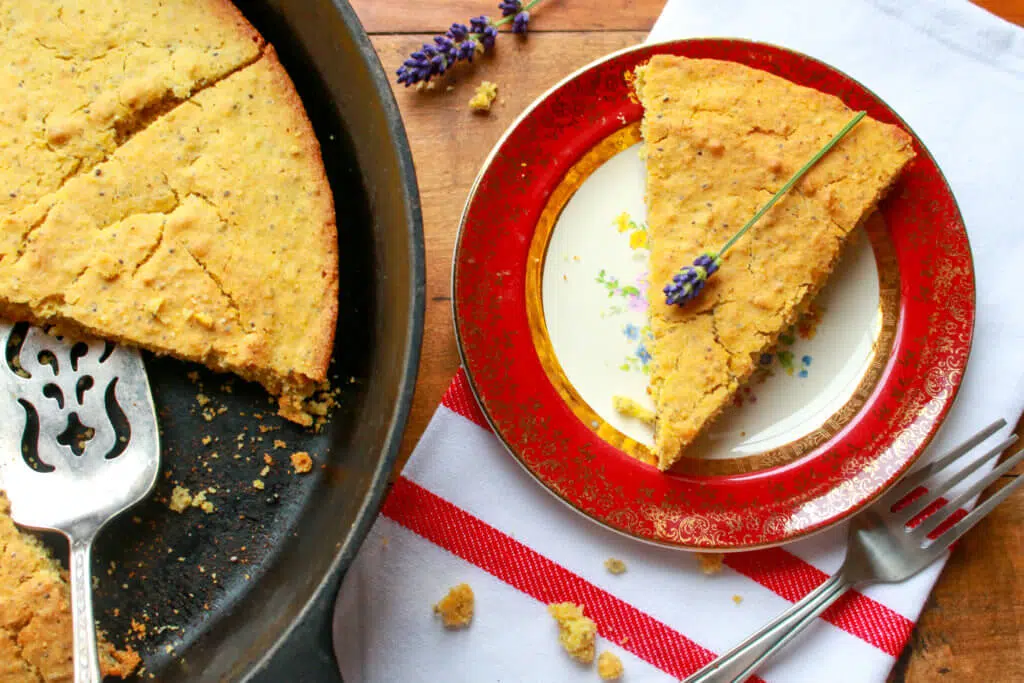
Cast iron cookware is renowned for its exceptional durability and longevity, making it an investment that can be passed down through generations. Unlike other types of cookware that wear out over time, cast iron only gets better with age. Its sturdy construction allows it to withstand high temperatures and heavy use without chipping or warping.
One of the reasons cast iron is so durable is because it is made from a single piece of metal, eliminating the risk of weak points or seams where damage could occur. This means that even after years of frequent use, your cast iron skillet or Dutch oven will still perform just as well as when you first bought it.
Additionally, the natural nonstick properties of seasoned cast iron prevent food from sticking to the surface and make clean-up a breeze. Cast iron’s ability to retain heat also ensures even cooking throughout your meals, resulting in delectable dishes every time. By investing in quality cast iron cookware today, you are setting yourself up for a lifetime (or more!) of delicious meals and cherished memories in the kitchen.
Essential Care and Maintenance: Preserving the Beauty and Performance of Your Cast Iron
Cleaning your cast iron:
- After each use, simply wash your cast iron cookware with warm water and a mild soap. Avoid using harsh detergents or scrub brushes that may damage the seasoning.
- Dry your cast iron thoroughly to prevent rusting. It’s recommended to air dry or heat it on low heat for a few minutes on the stove.
- If any stubborn food residue remains, you can gently scrub it off using a non-abrasive sponge or brush.
Seasoning your cast iron:
- Regularly season your cast iron by applying a thin layer of cooking oil across its surface. This helps build up its natural non-stick coating.
- Preheat your oven to 350°F (175°C). Place the oiled cookware upside down in the oven and let it bake for about an hour.
- Allow it to cool before wiping away any excess oil.
Storing your cast iron:
- Before storing, make sure your cookware is completely dry to prevent rust formation.
- To avoid scratching other pans or surfaces, place a towel between stacked pieces of cast iron in storage.
By following these simple care and maintenance practices, you can keep your beloved cast iron cookware performing at its best for generations. Don’t forget that as time goes by, your cookware will develop an even richer patina, resulting in enhanced cooking performance and added flavor complexity.
